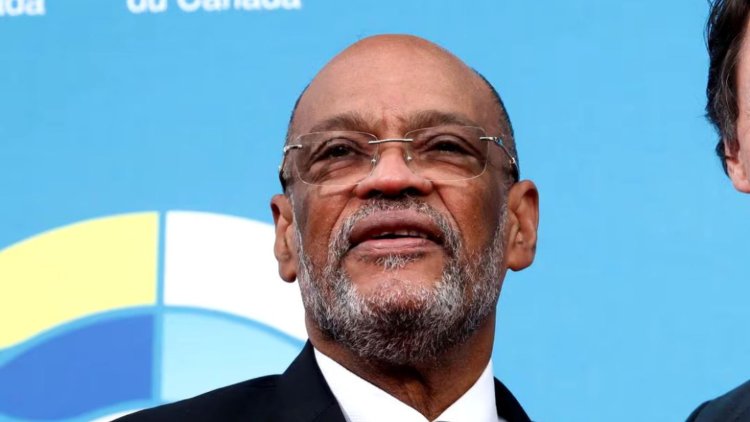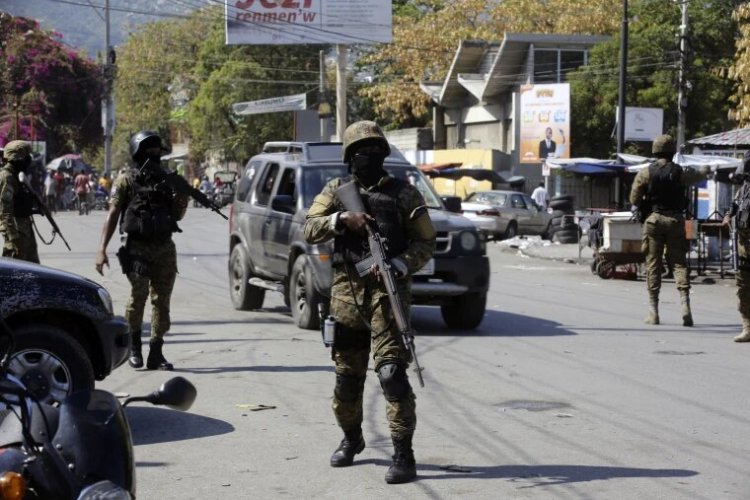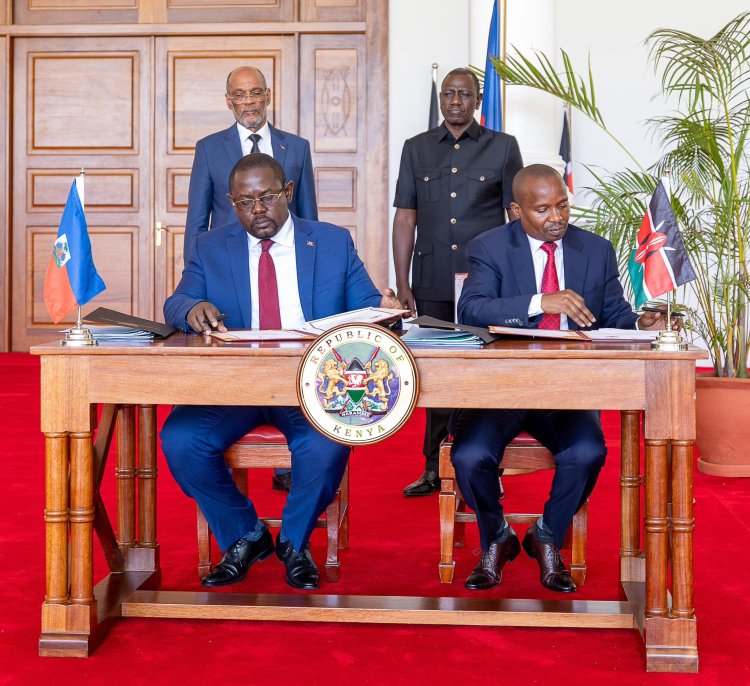How Haiti PM Ariel Henry's Visit To Kenya Cost Him His Job
The PM handed over his resignation, according to a statement from Mohammed Irfaan Ali, the president of Guyana and chairman of CARICOM.

On Monday, March 11, Haiti Prime Minister Ariel Henry resigned following a crisis meeting between the 15-member Caribbean Community regional bloc known as CARICOM.
The PM handed over his resignation, according to a statement from Mohammed Irfaan Ali, the president of Guyana and chairman of CARICOM.
"We acknowledge his resignation upon the establishment of a transitional presidential council and naming of an interim prime minister," Irfaan stated.
How It Began
The move by Henry to assume power after President Jovenelle Moise's assassination in 2021 was received bitterly by Haitians, more so, gangs that reigned terror in the Caribbean nation thereafter.
The now-former PM had taken the reins unelected which seemed to have accelerated the perpetual unrest with gangs mushrooming across the nation, all seeking dominance and more influence.

National palace guards set up a security perimeter Sunday around one of the three downtown stations a day after police fought off an attack by gangs in Port-au-Prince, Haiti. /NBC NEWS
Since then, gangs have been causing havoc in the nation with kidnapping cases rising and endless murders being reported. Rights groups indicate that about 10 people are kidnapped every day in the capital as gangs depend on ransom money to sustain themselves.
As the gangs gained more dominance, a gang under the name G9 led by former police officer Jimmy Chérizier, nicknamed Barbeque, took more prominence in protesting the illegality of the government in place.
The Kenya Visit
All the while, Henry's position as Prime Minister was still intact until a visit to Kenya on February 29, 2024, to seal a deal to launch a United Nations-backed multinational security force to fight gangs in Haiti, with Kenya agreeing to deploy 1,000 of its police officers.
The move sparked more violence, with Barbeque calling for Henry's resignation, and that he stay away from the country, warning of more dire consequences should the PM fail to step down.
"If Ariel Henry does not step down the country will suffer a genocide. If the international community continues to support Henry, they will lead us directly into a civil war," he told media outlets.
In the PM's absence, gangs took control of the Haitian National Airport, a move by the federation G9 Family gang and allies which ironically came after Henry flew to Kenya to officially sign the police deployment deal.
Cherizier had explained that the plan was to capture the entire government and repulse any efforts to have foreign officers deployed in their country, stating "With our guns and with the Haitian people, we will free the country."
The assumption of control of the airport blocked efforts by Henry to return to the country following his trip to Kenya, to which he was forced to divert to San Juan, the capital of the Dominican Republic. His plane was later diverted to the US territory of Puerto Rico where he has been domiciled since then.
Regional officials have been engaged in talks involving members of Haiti's political parties, private sector, civil society and religious groups aimed at establishing the transition council that would pave the way to the first elections since 2016.
Henry, who many Haitians consider corrupt, had repeatedly postponed elections saying security must first be restored. In recent days, countries in the region have withdrawn embassy staff and advised their citizens to leave.
The U.N. estimates the conflict has driven some 300,000 from their homes and that gangs last year killed close to 5,000 people and kidnapped nearly 2,500 - sometimes using videos of rape and torture to extort costly ransoms from victims' friends and families.
As of late February, the U.N. said five nations had formally pledged troops, with less than Ksh.1.5 billion ($11 million) deposited into a fund.
The United States government offered USD100 million (Ksh14 billion) for foreign officers being deployed to Haiti, an amount which was on Monday doubled as announced by US Secretary of State Antony Blinken during a meeting with Caribbean leaders (CARICOM).
During the meeting held in Jamaica, Blinken announced that the extra Ksh14 billion would facilitate the deployment of a multinational force to the war-torn Caribbean nation. Ksh4.6 billion was pledged by the United States government as humanitarian aid to expedite the political transition.
What Happens Now?
Following Henry's resignation, one of the outcomes of the meeting, a presidential college will be formed to ensure there is no political vacuum in the country pending the anticipated elections. Furthermore, a post of interim prime minister was proposed as his move left the ruling power to the gangs.
“The college will take concrete steps to meet the needs of Haitian people and enable the pending deployment of the multinational force to be led by Kenya,” Blinken was quoted as saying.

President William Ruto (far right), and Haiti Prime Minister Ariel Henry (far left) witnessed the signing of the agreement on the deployment of 1,000 police officers to Haiti. /PHOTO
It is worth noting that on Monday, Interior Cabinet Secretary (CS) Kithure Kindiki announced that the deployment of Kenya police officers to Haiti was in the pre-deployment phase.
"There was a small court matter (which) has been resolved. The court said we needed to have a reciprocal agreement with Haiti. That reciprocal agreement has already been signed about a week ago. We are now in the pre-deployment stage.
"All the other programmes are in place including the status of forces agreement and the laws on detention, arrests and other enforcement measures. The standard operation procedures are in place," Kindiki stated. It remains to be seen whether or not Kenya will still follow through with its planned deployment of police officers to Haiti following Henry's resignation, which had it not taken place, would have seen the police walk into a hostile, merciless, extremely violent situation where even delivering aid needed negotiating with at least 300 different gangs- most, if not all, of whom did not want them.

 admin
admin 




